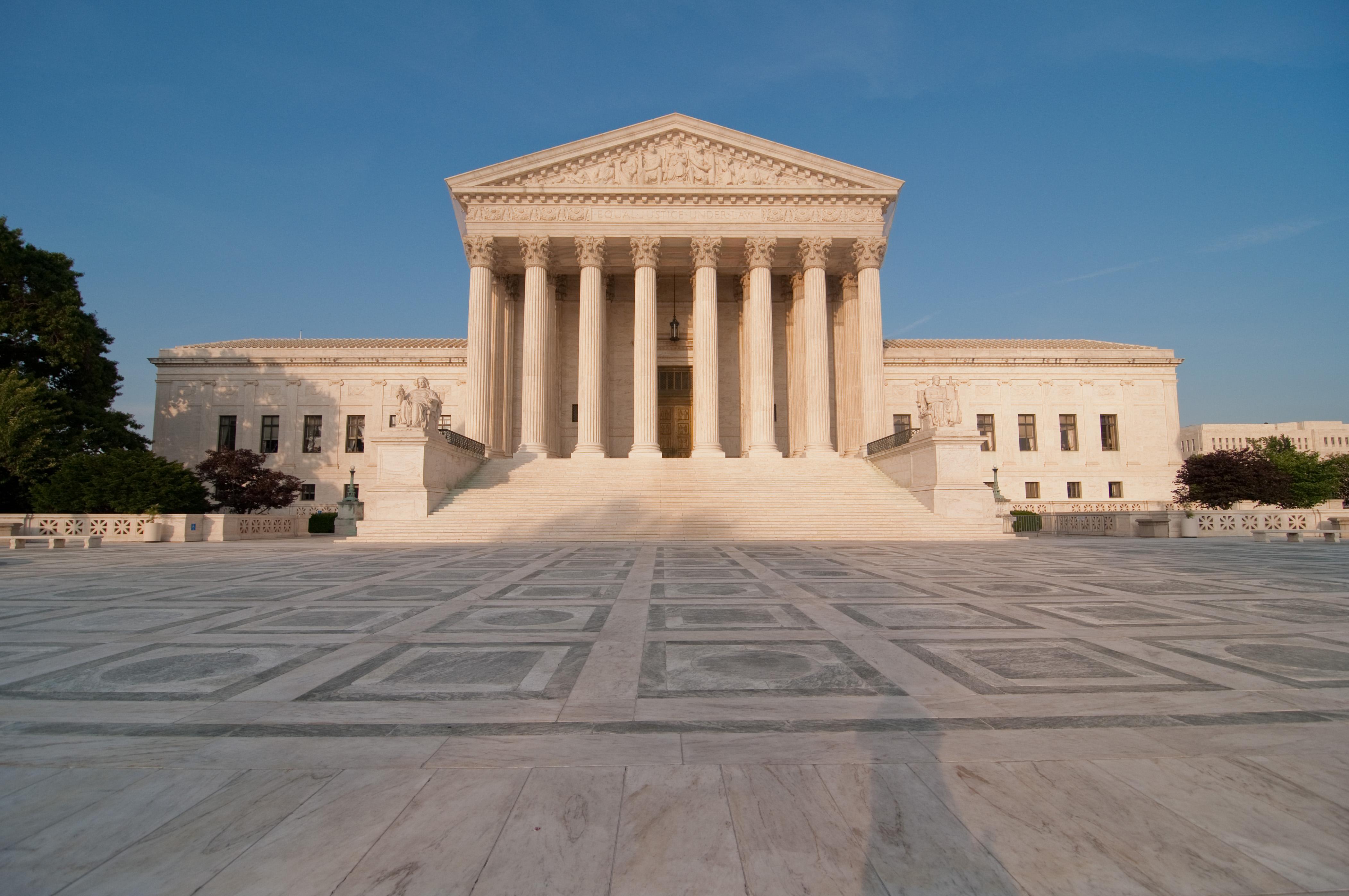Post-Decision Analysis
TaxNotes Article: The Moores Lost Their Claim and Moore
On June 20th, the Supreme Court issued a decision in Moore v. United States. In this article, we explain how the decision was a defeat for the Moores and will undercut future attempts to limit Congress's taxing power. The article is co-authored with Professors Lily Batchelder, Ari Glogower, David Kamin, Rebecca Kysar, and Darien Shanske.
Blog Post: Everyone agrees the Moores lost at the Supreme Court — except their counsel
Our blog post explores how, even thought their clients lost, the Moores' counsel are making a bold and baseless attempt to spin the decision as a victory. But the Court saw through their radical theory, recognized that their argument would leave a “blast radius” throughout the tax code, and roundly rejected it. If anything, the logic of the majority opinion suggests that a future Court should continue to exercise restraint in examining any proposed limit on Congress’s taxing power.
Statement on the decision from Chye-Ching Huang, Executive Director of the Tax Law Center at NYU Law:
“The Supreme Court heeded the warnings of a broad and bipartisan set of tax experts and roundly rejected the Moores’ radical theory that threatened to upend central pillars of the tax system.
Instead, and as the Tax Law Center and other amici urged, the Court exercised restraint by deciding only what it had to: that Congress could tax the Moores on their share of income realized at the corporate level. The Court declined to use this case to impose, as the Moores had requested, a novel constitutional requirement for income to be “realized” before it is taxed; that would have left, the majority noted, a “blast radius” cutting through the existing tax code.
Today’s decision will allow Congress to continue to exercise its power to tax income to fund the government and to make sure that all taxpayers – including multinational corporations and wealthy taxpayers – pay their fair share.
Although the Court appropriately refrained from deciding questions that were not necessary to resolve this case, some of the justices in concurrence and dissent were less restrained – attempting to take a preemptive strike against wealth and mark-to-market taxes, and even casting doubt about decades-old parts of the tax code. But this language is not part of the majority and is not binding: the taxes and arguments that these justices address were not necessary to resolve this case, which means that these justices did not see full briefing on these issues or deal with how Congress might design and implement new taxes to address any constitutional questions.”
Case summary
In December 2023, the US Supreme Court heard oral argument in Moore v. United States, a case in which petitioners have asked the Court to find that Congress’s power to tax income under the Sixteenth Amendment extends only to “realized” income. A ruling for the petitioners could result in a windfall for large multinational corporations and dismantle or unsettle wide swaths of the tax code, including fundamentals of the tax system that have been on the books for decades and that were built on a bipartisan basis. As the Tax Law Center has argued, the income at issue was realized, so the Court does not need to -- and should not – reach the question of whether the 16th Amendment requires realization. But if it does, it should reject the petitioners’ radical theory: there is no realization requirement to be found in text or history of the 16th Amendment, which says the federal government has the power to tax incomes “from whatever source derived,” and the petitioners’ sweeping argument certainly is not consistent with more than 100 years of the Supreme Court’s own cases, or with the existing tax code.
Tax Law Center analysis
August 2024: "The Moores Lost Their Claim and Moore"
Our analysis of the decision, published in TaxNotes, explains how the decision was a defeat for the Moores and will undercut future attempts to limit Congress's taxing power. The article is co-authored with Professors Lily Batchelder, Ari Glogower, David Kamin, Rebecca Kysar, and Darien Shanske
January 2024: “Moore v. United States: Avoiding a Damaging Limiting Principle in the Sixteenth Amendment"
Even as the justices for the most part approached the petitioners’ claim skeptically, they raised questions for both sides in the case as to the appropriate limiting principle for determining what Congress can tax as income under the 16th Amendment. In this post with Professors Ari Glogower, Rebecca Kysar, Darien Shankse, and David Kamin, we analyze several “limiting principles” to the 16th Amendment that were discussed in oral argument, and explain how many–though not all–of these could significantly undercut the income tax.
The Supreme Court today announced it will hear Moore v. United States, a case that challenges the constitutionality of the mandatory repatriation tax (MRT) enacted in 2017 as part of the Tax Cuts and Jobs Act (TCJA). This post is an introduction to the Moore case and the broad risks it poses to the tax system.
Additional resources
-
Amicus Brief by Tax Law Center and Professors Ari Glogower, David Kamin, Rebecca Kysar, and Darien Shanske.
-
January 2024 Panel discussion at NYU (hosted by NYU Law School and the Tax Law Center)
-
November 2023 Panel discussion with legal experts and amicus brief authors (hosted by the Tax Law Center, the American College of Tax Counsel, and the American Tax Policy Institute)
-
September 2023 Panel discussion with legal, economic, and tax policy experts (co-hosted by the Tax Law Center and the Tax Policy Center)
-
Guide to all Amicus Briefs filed in Moore
-
Selected additional commentary on the case
Tax Law Center perspectives in selected news coverage about the case
-
National Public Radio: Supreme Court hears a case that experts say could wreak havoc on the tax code
-
New York Times: The Supreme Court Battle That Could Rewrite the Tax Code
-
Bloomberg: Tax World Is Nervous as Court Arguments in Moore Case Approach
Summary of Argument from Amicus Brief by Tax Law Center and Professors Ari Glogower, David Kamin, Rebecca Kysar, and Darien Shanske. Full brief can be found here.
Petitioners frame the question presented in this case (at i) as whether the Sixteenth Amendment authorizes Congress to tax “unrealized sums” as income. But the statute at issue here, the mandatory repatriation tax (or MRT), does not tax unrealized sums. It taxes income that has unquestionably been realized at the corporate level. So the real question presented is not whether Congress may tax income that has not been realized. It is instead whether Congress may attribute the income realized by a corporation to its shareholders, rather than to the corporation itself, and tax them based on their attributable shares of that realized income.
In arguing that the answer is no, petitioners rely primarily on a 5–4 decision from the early 20th century, Eisner v. Macomber, 252 U.S. 189 (1920). Petitioners read Macomber as standing for the broad proposition that Congress may tax shareholders on a company’s profits only if the profits are actually distributed to them. But Macomber addressed the issuance of stock dividends by a corporation that had already been taxed on its income. It did not involve a scenario where, as here, the corporation’s income had not yet been taxed when it was attributed to the shareholders. In the 103 years since the case was decided, this Court has never used Macomber to invalidate a tax outside of stock dividends. Quite the opposite: The Court has repeatedly refused to extend Macomber’s reasoning beyond the specific context of that case. And for many decades since it was decided, Congress has legislated based on the understanding that Macomber is limited to that context. Petitioners’ theory of realization cannot be reconciled with this understanding and would imperil numerous tax provisions that have long been on the books.
Even petitioners cannot bring themselves to embrace the implications of their reading of Macomber. At the very back of their brief (at 44–53), they attempt to distinguish the MRT from various longstanding federal income-tax provisions, including other provisions that (like the MRT) govern controlled foreign corporations (or CFCs); the taxation of partnerships, S corporations, and other pass-through entities; and certain accrual-based taxes. In doing so, petitioners try to reassure this Court that the MRT is the one and only tax provision that is invalid under their view of the Sixteenth Amendment. Pet’rs Br. 2.
But petitioners offer no principled way to harmonize their theory of realization and their reading of Macomber with these longstanding tax provisions. Nor do they offer any principled way to distinguish these provisions from the MRT for purposes of the Sixteenth Amendment. To the contrary, in attempting to square their theory with these provisions, petitioners end up acknowledging a key point (at 51): that realization is ultimately a “legislative determination” for Congress to make based on policy judgments, not a constitutional limitation on legislative power whose meaning is fixed by federal judges.
Unable to distinguish the MRT from well-established features of the tax system, petitioners end up retreating to an argument that the MRT reaches too far back in time. But Congress’s decision to end the deferral of taxation on income realized over multiple years does not somehow transform the taxation of that income into something other than an income tax. The underlying tax base is still income because it reaches net gain. That it was realized over multiple years is irrelevant. Indeed, petitioners’ fallback argument has little to do with the Sixteenth Amendment and nothing to do with realization. Rather, it is a repurposed Fifth Amendment argument about retroactivity — and one that petitioners made below, rightly lost under well-established doctrine, and then abandoned. Thus, this alternative claim is not before the Court in this case. The Court should decide only the narrow issue before it: whether Congress may attribute income realized at the corporate level to the corporation’s shareholders and impose a tax on that income. Relying on decades of judicial precedent and congressional action permitting the attribution of income among related parties, this Court should answer yes.
The picture "Supreme Court" by Mark Fischer is licensed under CC BY-SA 2.0.

